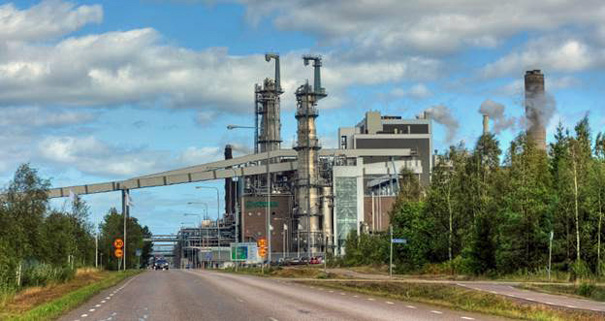Fitnir to Supply Recovery, Recausticizing Systems to Södra Cell Mönsterås
FITNIR Analyzers, Vancouver, B.C., Canada, will supply its state-of-the-art online analyzer system for measuring green and white liquor properties to Södra Cell Mönsterås, Sweden.
"This is a very exciting time for FITNIR Analyzers, as we continue to expand our market penetration outside of North America," said Tom Sands, president of FITNIR Analyzers. "With our high uptime and measurement precision, the analyzer can provide a means for Södra to reduce liquor variability and increase production. We are optimistic that we will see more interest from other kraft pulp producers worldwide in the near future."
One analyzer and two field sample stations will be installed at Södra Cell Mönsterås’s recovery and recaust areas. Replacing an outdated titration-based analyzer, FITNIR Online will monitor four streams (raw green liquor and weak wash) from two dissolving tanks, providing liquor compositions for TTA (total titratable alkali) control and RE (reduction efficiency) monitoring. In the recausticizing area, seven streams (clarified green liquor, slaker, four causticizers, and final white liquor) will be analyzed and used for TTA-trim control, slaker, and final CE (causticizing efficiency) control.
"We are looking forward to implementing FITNIR’s analyzers at SÖDRA Cell Mönsterås," said Håkan Edvinsson, project manager at Södra Cell Mönsterås. "It is very important to our pulp mill to have this kind of analyzer for process control and we are satisfied with the high precision and availability FITNIR guarantees to deliver."
Södra Cell Mönsterås’s system will be delivered in early February and startup is planned for April 2017.
Södra’s pulp mills produce softwood pulp of spruce and pine, and hardwood pulp from birch. The pulp is mainly sold to European manufacturers of tissue, specialty paper, packaging, and publishing papers.
Södra’s largest pulp mill is Mönsterås. Operating since 1958, it has expanded over the years, developing into one of the world's most modern mills, today producing 750,000 metric tpy of pulp. The mill's core business is pulp production. However, its capacity to serve as a source of electricity is becoming increasingly important. Mönsterås also produces district heating and transforms pine oil into biodiesel.
TAPPI
http://www.tappi.org/

